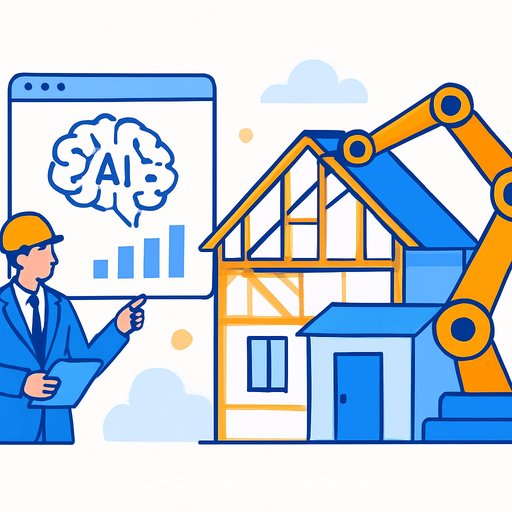America's Largest Homebuilder Teams with AI Startup to Speed Up Approvals
D.R. Horton has partnered with Prophetic, a Portland-based startup, to compress zoning reviews from hours to seconds. The goal is simple: evaluate land faster, make cleaner calls, and move on the best opportunities before anyone else.
With the U.S. short roughly 4 million homes and development costs rising, faster, more accurate land analysis is one of the few levers that can move the needle on supply. This is a practical use of AI that targets a stubborn bottleneck: reading zoning code across thousands of jurisdictions.
Why It Matters
Zoning laws change by city and county. That variance creates delays, ambiguity, and missed deals. If you can answer "what's buildable here?" in 30 seconds with citations, you trim weeks from the front end of the pipeline and improve hit rate on acquisitions.
If adopted at scale, this approach could open more parcels for residential projects-and spill over into commercial development where feasibility checks slow teams down.
How Prophetic's Zoning AI Works
The platform ingests thousands of local zoning documents and uses large language models to extract the rules that drive site yield: minimum lot sizes, density limits, setbacks, height, and use. Outputs include the underlying citations, so your counsel and entitlement teams can audit quickly.
What used to take two to three hours per parcel can be reduced to roughly 30 seconds, with a documented source trail for compliance.
Coverage and Scale
The tool covers zoning scenarios across 25 states. Given the variety of local codes-more than 440,000 ways to describe what's allowed on a single parcel-normalizing this data lets builders assess buildable land more consistently across markets.
Impact on Supply and Pricing
Since the Great Recession, new housing hasn't kept pace with demand. Estimates peg the shortfall around 4 million homes, with prices up more than 50% since before the pandemic. Faster, higher-confidence land screening won't solve everything, but it can expand the funnel of viable sites and bring more projects to life.
Speed Is a Deal Advantage
In acquisitions, first mover often wins. According to Prophetic's leadership, teams using AI can evaluate land and make offers before competitors finish traditional zoning reviews. That time edge helps secure control positions and lock in deals others haven't assessed yet.
What This Means for Developers and Builders
- Use cases: pre-acquisition screening, entitlement feasibility, and due diligence audits.
- Pilot narrowly: pick 1-2 metros, set a review SLA, and compare AI outputs to planner/counsel sign-off.
- Integrate with your GIS and pro forma: convert AI rules (setbacks, FAR, density) into lot yield and revenue assumptions.
- Governance: require citations for every rule, archive outputs, and standardize a human-in-the-loop checklist.
- KPIs: time to first-pass zoning read, parcels screened per week, accuracy vs. legal review, win rate on offers, entitlement cycle time.
- Risk control: treat AI as a speed layer, not a rubber stamp. Final calls stay with experienced entitlement and legal teams.
What to Watch Next
- Expansion to more states and deeper municipal layers (overlays, special districts, mixed-use provisions).
- Direct pulls from updated municipal code repositories to reduce stale data risk.
- Workflow integrations: permitting portals, takeoff tools, and capital underwriting platforms.
- Adoption by commercial teams for mixed-use and infill strategies.
Go Deeper
- D.R. Horton is tapping a startup's AI zoning tool to build more homes - CNBC
- D.R. Horton Partners with AI Startup to Speed Up Home Development - The Tech Buzz
Next Step for Your Team
If you're building internal capability around AI for land acquisition, entitlement, and preconstruction, structured training shortens the learning curve and reduces errors.
Your membership also unlocks:






